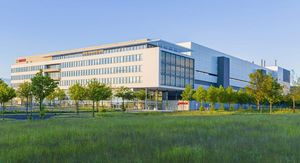Hyundai Motor Company is entering a transformative phase as it prepares to navigate the ever-evolving automotive market under the leadership of its new CEO, José Muñoz. Appointed as the company's first foreign CEO, Muñoz is set to take the reins beginning January 2025, following considerable growth and resilience displayed by the automaker amid uncertainties.
At the recent LA Auto Show, Muñoz unveiled Hyundai's ambitious strategy to maintain and expand its influence within the U.S. market, particularly focusing on electric vehicles (EVs). With plans to roll out 23 electric models by 2030, including the much-anticipated Ioniq 9, the company is positioning itself as a serious competitor to established players like Tesla and General Motors.
Muñoz’s appointment arrives at a time when many industry analysts raise eyebrows at potential regulatory shifts under the incoming Donald Trump administration, particularly surrounding the future of the Inflation Reduction Act (IRA) which bolsters EV manufacture through tax incentives.
Addressing these concerns, Muñoz articulated his belief in Hyundai's resilience, stating, "The strength of our company is to react quickly." His focus appears to center not just on adapting to regulations but also on upholding the company's commitment to enhancing its product lineup regardless of external changes. He emphasized the concept of flexibility—the ability to pivot quickly to consumer demands and market trends as they emerge.
Under his leadership, Hyundai has already taken significant steps. Just last month, the automaker announced plans to invest $12.6 billion across its facilities, particularly focusing on the Georgia Metaplant. This facility aims not only to produce electric vehicles but also hybrids and plug-in hybrids, marking Hyundai's commitment to offer diverse options to consumers craving eco-friendly vehicles.
Muñoz's commitment to expansion is bolstered by impressive sales figures, having recorded growth of 5% year-on-year recently, leading the company to break sales records for four consecutive years. "We set a sales record in the U.S. in the third quarter of this year, up 5% year-on-year," he noted proudly.
At the heart of Hyundai's approach is its willingness to evolve and embrace modern technologies. Collaborations are on the horizon, with partnerships planned with companies like Waymo for self-driving technologies. The company is working on producing the Ioniq 5 for Waymo’s self-driving taxis, highlighting its commitment to future-ready solutions.
Despite the uncertainty surrounding EV tax credits, Muñoz stressed the long-term vision for Hyundai's electrification strategy, remarking, "Tax benefits are not the standard for us to prepare and promote our business. What is more important is providing customers with options, including hybrid vehicles, plug-in hybrids, extended-range electric vehicles, and even hydrogen electrics." This multi-faceted strategy acknowledges the various customer preferences and regulatory landscapes, ensuring Hyundai stays versatile.
The electric vehicle sector is competitive, with major players vying for market share. Heba’ Brazilian, automotive market analysis, indicates the transition to EVs presents both immense opportunity and formidable challenges. With rivals fiercely pushing boundaries and innovations, Muñoz's strategic decisions will be under close scrutiny as he navigates potential tariff threats and regulatory hurdles.
Looking forward, Muñoz's vision is clear: maintain agility and responsiveness within the company culture—a philosophy aptly encapsulated by the Korean phrase “pali pali,” translating to “quickly, quickly.” This ethos aims to leverage Hyundai's operational strengths as it scales new heights amid swirling market dynamics.
While pondering the future, it seems, the integration of technology and agility will not only help Hyundai to stay afloat but potentially thrive during this transitionary period for the automotive industry. The coming years will be pivotal, and all eyes will be on how well the new CEO, alongside his team, can steer the ship through both opportunities and challenges in the automotive marketplace.



